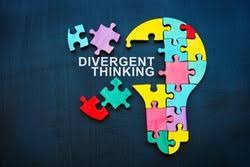Dictionaries as Tools of Liberation
The stack of dictionaries on my desk—Merriam-Webster’s Collegiate, Intermediate, and Elementary editions—represents far more than just books.
They symbolize the power of language to transform lives. Each one, tailored for different stages of learning, has been a companion on my journey of growth and self-empowerment since 1996.
Dictionaries are not just for looking up words; they are tools of liberation.
They unlock access to knowledge, give us the power to articulate our thoughts, and allow us to understand the world.
Historically, literacy has been a form of resistance, a way for marginalized communities to claim their freedom and voice.
Even today, having the right words can be the difference between being silenced and being heard.
For me, these books are reminders of the potential that comes with literacy.
Whether teaching pronunciation symbols to students or discovering the nuances of a word myself, I see these dictionaries as gateways to empowerment.
They make complex ideas accessible, break down barriers, and inspire action.
On my desk, they sit as a testament to the belief that words can liberate, educate, and transform.
Shawn Anthony Robinson PhD




Comments
Post a Comment